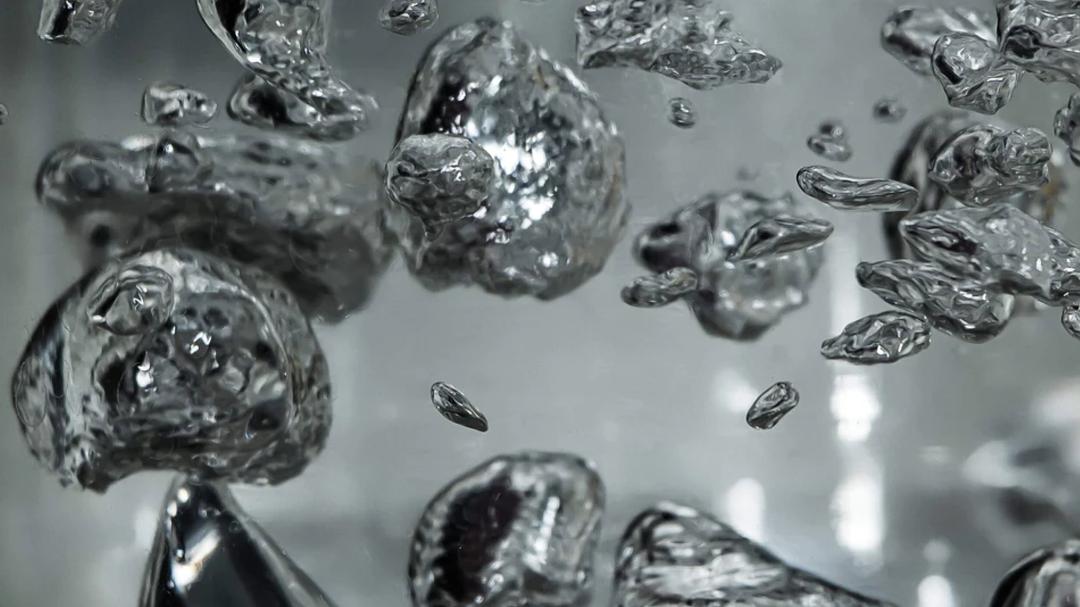Trihalomethanes (THMs) are a group of cancer-linked disinfection byproducts (DBPs) legally allowed in drinking water in all 50 states. Read on to discover the dangers associated with these DBPs, why many popular, store-bought filters can’t fully protect you from them, and how to get proven protection from THMs and other carcinogens, without sacrificing convenience.
Can You Remove Trihalomethanes From Drinking Water?
Share This Article:

Trihalomethanes Form When Chlorine & Other Disinfectants React With Organic Matter In Water
Disinfection byproducts, like THMs, typically form when chlorine reacts with organic matter present in our tap water supply. Remember, our tap water comes from surface water and groundwater that has been treated, or disinfected, at water treatment plants. And chlorine, as well as other disinfectants, are typically used during water treatment processes to kill bacteria and viruses in water.
However, when certain disinfectants react with certain organic matter that is found in drinking water systems, dangerous THMs can form. For example, when chlorine reacts with organic materials like leaves, algae, or even certain pollutants like pesticides in water, THMs can form.
The four most common THMs found in water are chloroform, bromoform, dibromochloromethane, and bromodichloromethane.
Drinking Water Contaminated With Trihalomethanes Can Cause Cancer As Well As Liver, Kidney, And Nervous System Damage
According to research, long-term ingestion of water containing high THM levels poses several health risks and health effects ranging from minor issues like skin and eye irritation to serious conditions like liver, or kidney problems. Some studies even link THMs exposure to an increased risk of miscarriages.
Dangerous Levels Of Trihalomethanes Are Allowed In Drinking Water In All 50 States
The U.S. Environmental Protection Agency (EPA or USEPA) has set the Maximum Contaminant Level (MCL) for total trihalomethanes (TTHMs) at 80 parts per billion. In other words, up to 80 ppb of chloroform, bromoform, dibromochloromethane, and bromodichloromethane combined is legally allowed in our tap water today.
Meanwhile, the Environmental Working Group (EWG) suggests that no more than 0.15 parts per billion (ppb) of total trihalomethanes should be allowed in water to protect the public from cancer. For perspective, the EPA’s MCL is ~533x greater than the EWG’s limit.
Meanwhile, EWG data shows that contamination is common as approximately 296 million Americans were exposed to trihalomethane-contaminated drinking water between 2017 and 2019.
How To Remove Trihalomethanes From Your Drinking Water
Remember, trihalomethanes are currently allowed in our tap water at potentially dangerous levels. So let's take a look at the right (and wrong) ways to protect yourself and your loved ones.
The Vast Majority Of Mainstream Carbon Water Filters Are Not Certified To Remove THMs From Water
Granular activated carbon filtration technology, the primary filtration technology in many popular low-cost filters, is a highly porous material that can trap and absorb THMs and other contaminants. However, the effectiveness of activated carbon in removing THMs depends on a number of factors, including the type of carbon, the flow rate of water through the filter, and the age of the filter.
That’s why the vast majority of carbon filters are not certified to remove THMs. In other words, your protection is not guaranteed.
Why Reverse Osmosis Systems Are Not Your Best Option
While Reverse Osmosis water filtration systems leverage semi-permeable membranes to remove nearly everything, including THMs, from tap water, they have the potential to do more harm than good. Here’s why:
1. RO systems remove healthy minerals like calcium, magnesium, and potassium from your water, too. That’s why most RO users go through the hassle of remineralizing their water after it has been filtered.
2. RO systems can waste up to 75% of the water they filter. As you can see, they can be alarmingly inefficient.
3. RO-filtered water has been described as “dead.” Said differently, it has been called “tasteless” and “flat” (likely because it has been stripped of healthy minerals).
Ion Exchange Systems Won’t Protect You From THMs In Your Drinking Water
Ion exchange technology, which is primarily used in water softeners, focuses on exchanging “hard” ions (such as calcium and magnesium) for “soft” ions (like sodium) to soften water.
Most ion exchange systems do not effectively remove THMs from tap water because they are not designed to target a wide range of organic chemical compounds, like THMs and other DBPs.
Distillation Has A Variety Of Drawbacks
Distilling water can reduce some, not all, volatile organic compounds (VOCs) like trihalomethanes to improve water quality, but it is a slow, energy-intensive process that can also strip water of healthy minerals. Plus, protection is limited as distillation does not remove gasses, radioactive contaminants, and a variety of other dangers.
Ceramic Filters Are Not Effective At Removing Trihalomethanes
Ceramic filters are not specifically designed to remove THMs from water. Instead, ceramic filters focus on removing basic impurities and larger particles such as sediment.
UV Filters Won’t Protect You Against THMs In Your Drinking Water
UV filters do not effectively remove THMs from your drinking water, because this technology is primarily used to kill bacteria and viruses, rather than to target organic compounds and chemicals.
Boiling Your Water Does Not Provide Complete Protection Either
While boiling water can reduce THMs in tap water, it typically does not remove all THMs. In other words, it only provides limited protection.
Bottled Water Is Just As Dangerous As Tap Water
The FDA allows the same amount of trihalomethanes in bottled water as the EPA does in tap water. Therefore, bottled water can contain up to ~533x the amount of trihalomethanes EWG experts believe can lead to an increased cancer risk.
Clearly Filtered’s Affinity Filtration Technology Targets Trihalomethanes, As Well As Hundreds Of Other Contaminants Other Filters Can’t
Powered by 7 unique filtration medias, our advanced Affinity Filtration Technology protects you from up to 365+ harmful tap water contaminants, including trihalomethanes, without targeting healthy minerals.
There’s nothing else out there that ensures your water is this clean, safe, and healthy, so you can trust every drop.
Get Proven Protection With Clearly Filtered
All of our advanced water filters and whole house systems target trihalomethanes in tap water and private well water, so you never have to worry about these cancer-linked compounds again.
If you want proven protection from trihalomethanes and hundreds of other common dangers, upgrade to Clearly Filtered today to get easy access to clean, safe drinking water.
References
1. Total Trihalomethanes (TTHMs) https://www.floridahealth.gov/environmental-health/drinking-water/_documents/thms-fs-2017.pdf
2. Trihalomethanes in drinking water and spontaneous abortion https://pubmed.ncbi.nlm.nih.gov/9504280/
3. Total trihalomethanes (TTHMs) https://www.ewg.org/tapwater/contaminant.php?contamcode=2950#
4. Arsenic https://www.ewg.org/tapwater/reviewed-arsenic.php



